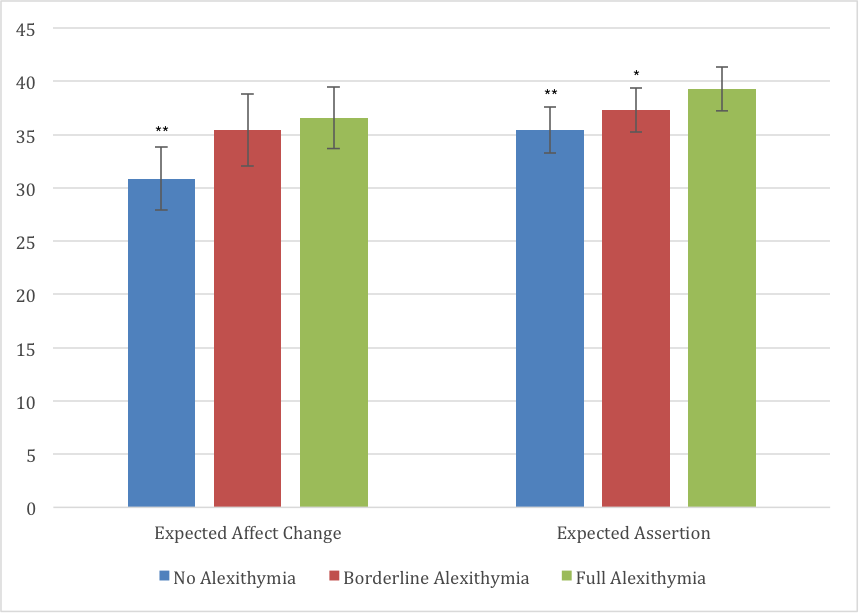Editor’s note: As part of our broader effort to streamline our science reviews, we have changed the way we provide citations to academic papers. Rather than presenting a list of references at the end of science reviews, we now link directly to published abstracts of these papers within the main text. Readers can click on these links to learn more details about the papers.
People often drink alcohol in an attempt to manage their emotions. For example, some might use alcohol to help cope with unwanted negative feelings or to feel more comfortable in social situations. Surprisingly, roughly half of people with alcohol-dependence suffer from some level of alexithymia, or “emotional blindness.” Individuals with this personality trait have trouble recognizing, processing, and communicating their own emotions, as well as difficulty understanding others’ emotions. They tend to focus on external experiences (e.g. physical tingling sensations) rather than internal ones (e.g. feelings of surprise). For those with alexithymia, their drinking might be driven by the desire to access, not suppress, emotions. This week’s DRAM reviews a study by Fred Arne Thorberg and colleagues that explored whether drinking expectations differ for those with and without alexithymia.
What was the research question?
What personal outcomes do alcohol–dependent treatment seekers with alexithymia expect when drinking compared to those without alexithymia?
What did the researchers do?
Researchers used self-report measures to identify (1) level of alexithymia (none, borderline, or clinical level) and (2) drinking expectancies, in treatment-seeking individuals diagnosed with alcohol dependence (n = 355). The researchers examined three types of drinking expectancies: affective change, (e.g., “Drinking makes me bad tempered”); assertion, (e.g., “Drinking makes me feel out going and friendly”); and tension reduction, (e.g., “I drink to relieve tension”). They then looked for significant relationships between expected outcomes from drinking and alexithymia.
What did they find?
Alcohol-dependent individuals who met criteria for borderline (n = 94) or full alexithymia (n = 116) were significantly more likely to expect affective changes from drinking than those without (n = 145). Those with full alexithymia also reported higher expectancies of assertion than those with borderline alexithymia or without. See Figure 1.
Figure 1. Mean alcohol expectancies for those with and without alexithymia. Bars represent 95% Confidence Intervals. Adapted from Thorberg et al. (2016).

Asterisks indicate statistically significant differences as compared to full alexithymia.
Why do these findings matter?
The results of this study demonstrate that those with alexithymia have a unique relationship to alcohol compared to those without and therefore may need different tools and support when recovering from alcohol dependence. Alexithymia among those with alcohol-dependence should be more thoroughly explored in research.
Every study has limitations. What were the limitations in this study?
The researchers only asked about expectations and did not examine the effects of alcohol consumption on those with vs without alexithymia. Therefore, they were unable to identify any differences in emotional or behavioral changes.
For more information:
Are you worried that you or a loved one might be suffering with alexithymia/emotional blindness? Take this online screen for more information.
For more information about treatment for alcohol problems in general please visit the National Institute on Alcohol Abuse and Alcoholism.
— Emily Shoov
What do you think? Please use the comment link below to provide feedback on this article.




